The Wonder of Your Baby’s First Giggle
We don’t believe there are many sounds more magical than a baby’s first giggle. The moment your child transitions from warm smiles to cinematic giggles is an extraordinary development milestone. As parents, we reminisce about those first moments of joy – while actively looking for ways to make baby giggle more often. Here’s the good news, you don’t need to have specialized talents or costly gadgets, just a couple of simple effective baby joy tips to set the table for those moments.
You’ll find 10 foolproof ways that have helped hundreds of parents tap into baby laughter. From light tactile stimulation to surprising sounds, whatever your routine – these tips apply across all development stages and baby temperaments.
Understanding Your Babies Sense of Humor
When do babies usually laugh?
Most babies have their first real laugh around 3-4 months old, although many laugh earlier and some later than that. Prior to laughing, you’ll notice social smiles (6-8 weeks) that eventually become lovely baby giggles.
The Science to Baby Laughter.
Baby laughter is significant in more ways than one; it is scientifically significant. When your baby laughs :
- Their brain releases endorphins and oxytocin (the “bonding hormone”)
- Neural pathways associated with social connection become stronger
- Emotional development occurs at a much faster rate
- The parent-child attachment is strengthened
The sooner you know what makes your baby laugh, the sooner you can help them experience more meaningful interactions to support cognitive and emotional development.
10 Foolproof Tricks to Make Baby Laugh
1. The Classic Peekaboo Game
Peekaboo remains a time-tested favorite for one simple reason: it works! This game leverages your baby’s developing understanding of object permanence.
How to do it effectively:
- Start with your face close to your baby
- Cover your face with your hands
- Wait 2-3 seconds (building anticipation)
- Reveal yourself with an enthusiastic “Peekaboo!”
- Try different variations: peek from behind furniture, use a blanket, or add funny faces
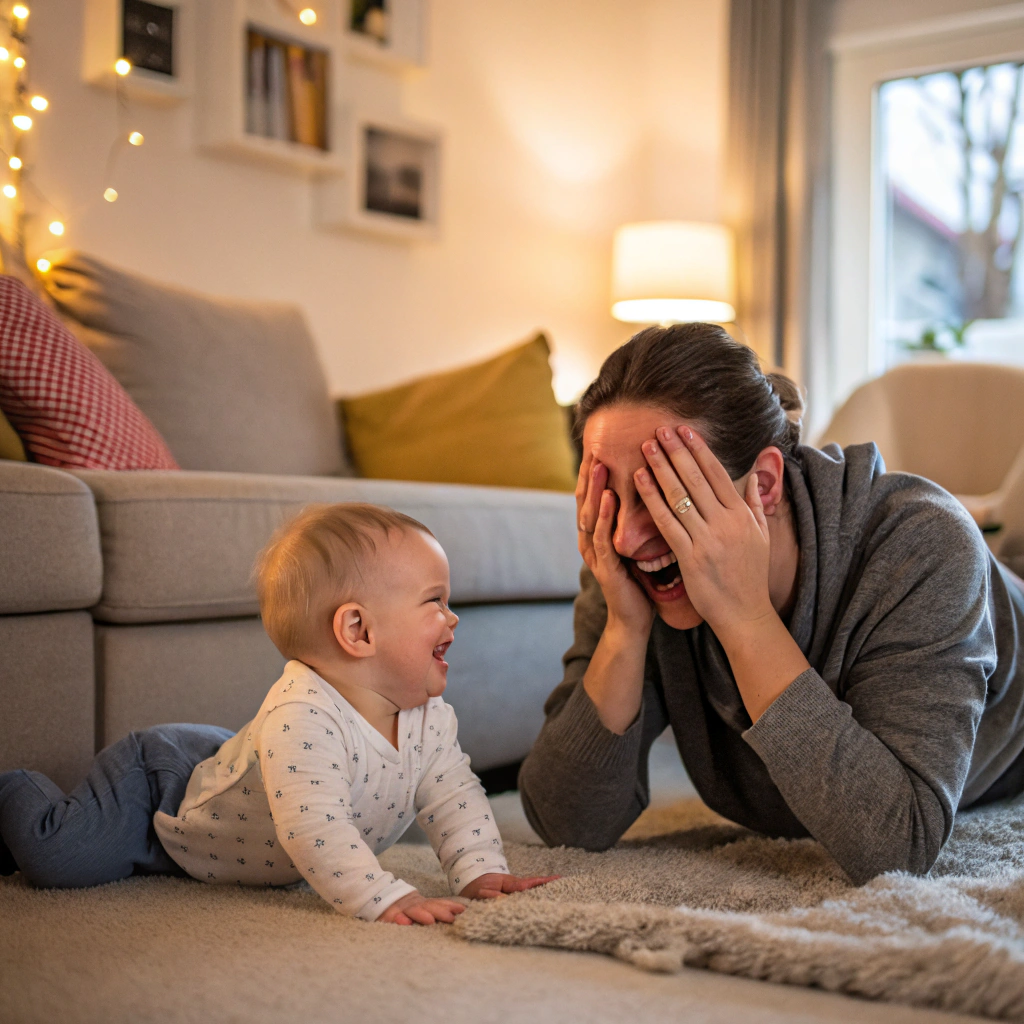
2. Teasing Tickle in Just the Right Places
Most babies have ticklish spaces that lead to laughter.
Best Tickle Spots :
- Under the chin
- Tummy (especially when changing a diaper)
- Sides of the rib cage
- Bottoms of feet
- Behind the knees
Take a tip : Be light and gentle (as opposed to harsh tickling), and you can always stop if your baby looks overstimulated.
3. Funny Sounds and Silly Voices
Babies are naturally attracted to unusual sounds and variations of voice.
Explore those sounds in the following ways :
- Make raspberry sounds on their tummy or neck
- Make animal sounds (exaggerated are impactful)
- Make popping sounds with your lips
- Secret whispered followed by loud exclamations
- Sing familiar songs in funny voices
4. Use Common Items in Fun Ways
You don’t need anything fancy to get baby laughing – many things in your home will work even better!
Simple props that can create giggles :
- Crinkly paper or packaging
- Soft scarves to change up peekaboo.
- Stuffed animals that can “talk” to your baby.
- Mirrors (babies love to see themselves AND you!)
- Cups that stack and fall.
5. Movement Games
Many babies will giggle during movement activities that offer a sense of mild arousal.
Safe movement activities :
- “Airplane” where you lift baby securely over your head
- Gentle bouncing on your knees
- Slowly moving baby side to side
- This little piggy” wiggling toes
- Swaying side to side while holding baby (dancing in slow motion)
6. Surprise Factor Adventures
Surprising someone can produce those lovely baby chuckle sounds.
Surprise techniques include :
- Unobtrusively popping up from below a table
- Hiding a toy, making it reappear
- Pretending to sneeze in an exaggerated way,
- Create a jack-in-the-box effect with a stuffed animal
- Building up speed with “I’m gonna get you” game
7. Facial Expressions That Make Baby Laugh
Your face is your baby’s favorite entertainment system.
Expressions that often trigger laughter:
- Wide eyes and raised eyebrows
- Puffed cheeks that you “pop” with your fingers
- Sticking out your tongue
- Exaggerated smiles and frowns
- Pretend sneezing or yawning
8. Mirror Play Activities
Mirrors intrigue babies and frequently bring out smiles and laughter.
Mirror activities may include :
- Make silly faces together in the mirror
- Play peekaboo with your reflections in the mirror
- Point and name facial features excitedly
- Dance together while watching in the mirror
- Make stuffed animals “appear” in the mirror

9. Gentle Physical Comedy
Babies often find mild physical humor hilarious.
Safe physical comedy ideas:
- Pretend to bump into things
- Act surprised when toys make noise
- Fake losing your balance (while keeping baby safe)
- Pretend objects are too heavy to lift
- Play “disappearing” games behind furniture
10. Using Music and Rhythms
Rhythm-based activities can often promote baby giggles.
Musical laughter is often triggered by :
- Bouncy songs inclusive of pauses
- Finger plays like “This Little Piggy”
- Clapping games that have rhythm changes
- Gentle dancing with lots of dips and spins
- Singing songs and adapting the words to incorporate baby’s name
When Your Baby Joy Tips Don’t Work
Sometimes, despite your best efforts, your baby might not laugh. Remember that:
- Each baby develops at their own pace
- Some babies are naturally more serious than others
- Timing matters – avoid trying when baby is hungry or tired
- Consistency helps – keep trying favorite activities
- Your baby’s preferences will evolve as they grow
The most important thing is maintaining a warm, fun atmosphere without pressure to perform.
Conclusion
When you learn how to make baby laugh, it’s magical! Do it often so they can develop and strengthen the bond between you. These baby giggles ideas enhances more than just fun experiences – they help build a foundation for social skills, emotional well being, and the relationship you have with your baby.
Their laughter is a delightful gift which comes naturally through your exploration with them. Savor the moments, capture the stock when you can, all the while don’t forget to be silly, because to him or her, you are an ah-amazing entertainer!
Frequently Asked Questions
When do babies first laugh?
Most babies will have their first laugh between 3-4 months of age with some babies starting to laugh as early as 2 months or as late as 6 months. Babies develop at their own pace.
Why has my baby not laughed?
Please don’t be concerned if your baby has not laughed yet; all babies develop at their own pace. Some babies tend to be serious or more reserved. Ensure positive interactions and consult with your pediatrician if you have concerns developmental.
Can I make my newborn laugh?
Most babies begin laughing around 3-4 months of age. Newborns may smile reflexively, but babies develop social smiles usually begin at 6-8 weeks with a laugh following later.
What’s the difference between a social smile and a laugh?
Social smiles are your baby’s reaction to seeing your face or hearing your voice. Laughter uses the vocal cords and frequently involves the entire body, which is a sign of greater social ability.
Why does my baby laugh at strangers – but not at me?
This is completely normal! Babies are sometimes epic enthusiastic at new faces. You are always there – but strangers are new. The baby does not love interacting with you any less.
Can baby laughter indicate more development?
Yes! Baby laughter shows that the baby is developing awareness of social situations, emotional responses, and cognitive perceptions of their surrounding environment.
What if my baby becomes overstimulated while I am trying to make them laugh?
Look for signs like turning away, fussiness, or rubbing their eyes. This is when you will want to step back and reduce stimulation. Each baby will have their own level of excitement and threshold.
How long should I be trying to make my baby laugh each day?
Quality is more important than quantity. A few short and positive interactions throughout the day will be better than one prolonged session that the baby may find overwhelming.
Can laughter help with baby sleep issues or fussiness?
Positive play may improve baby’s mood overall but plan to avoid any stimulating play before bed. If your baby is having sleep problems, our suggestions are to look into no-cry newborn sleep help, or how to establish your newborn’s sleep routines
Is it normal for babies to giggle while they are sleeping?
Yes! Babies frequently will smile or giggle while they are in REM sleep. It is not that they are experiencing laughter or anything funny, but rather displaying stuff they aren’t consciously thinking about, drifting through the many sleep cycles.
Can I record my baby’s first laugh?
Be a good neighbor and keep your phone near you while you play with your child, and be ready when the laugh breaks out. Try to be mindful of the interaction of joyful delight and fun, over recording the moment.
Do babies laugh at the same things adults laugh at?
No! Typically babies laugh about the simplest, most physical forms of humor i.e. peekaboo, etc. Adults laugh about language and have textual and cultural references along with it that babies do not have yet.
Can laughing games promote my baby’s developmental skills?
Definitely! Laughing games usually activate more than one sense and, at the same time, support cognitive, physical and emotional development.
Will my baby have the same sense of humor as me?
Humor relies on temperament; but, of course, environmental factors and experiences also guide which things your child finds funny as they grow.
Why does my baby laugh sometimes when I am saying “no”?
Often when babies really respond to your tone of voice, and facial expression, rather than the word no. If you have a funny reaction or even a serious reaction, they may find it funny or interesting!
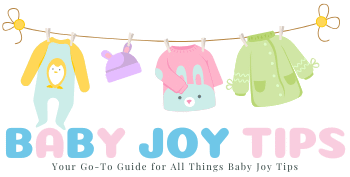
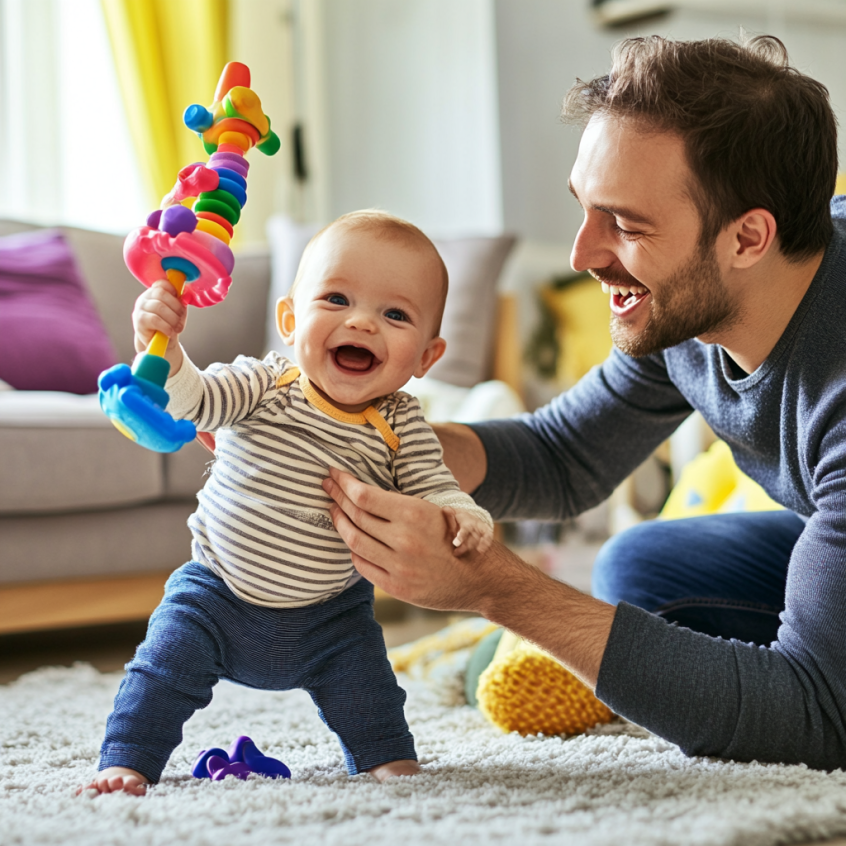


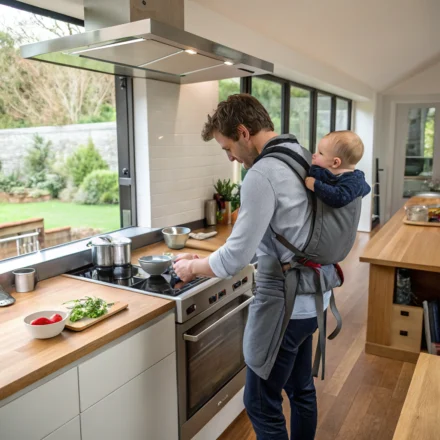
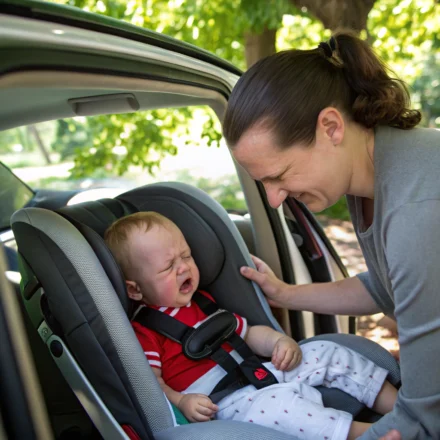
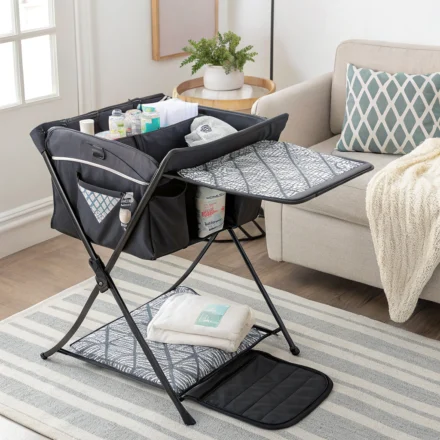

Leave a Comment